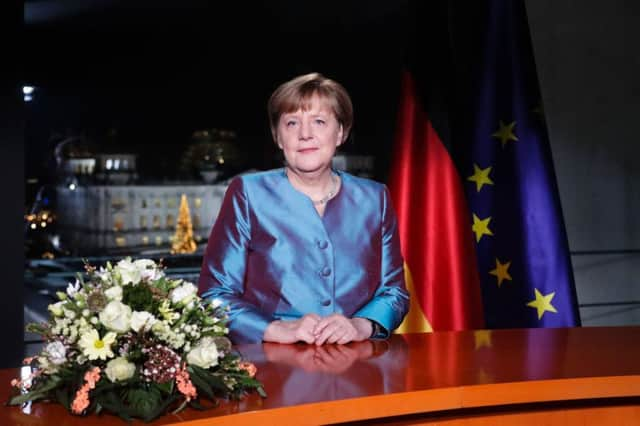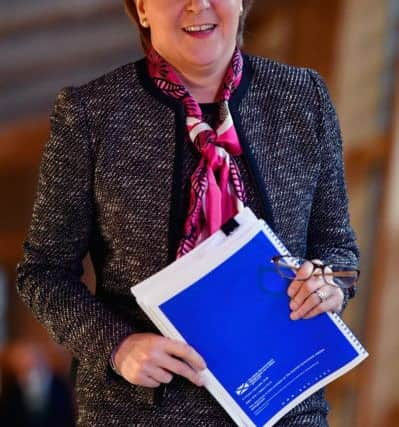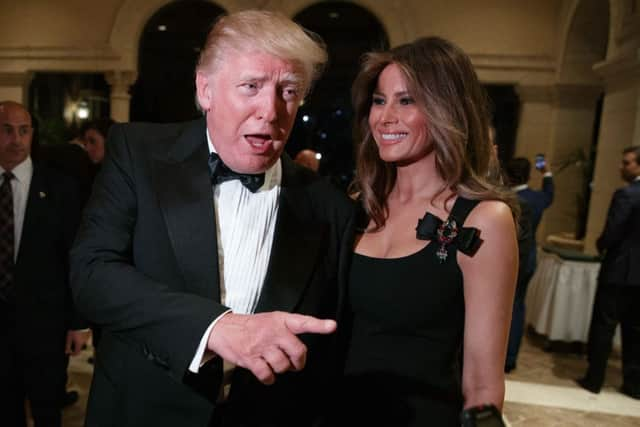Tom Peterkin: Fresh upheaval in 2017 with Trump and Brexit


The future of the European Union and the Trump presidency in the US are likely to dominate the agenda, with the rise of populist right-wing movements continuing to feature prominently.
As Britain embarks on its journey to leave the EU, January will see a crucial decision from the Supreme Court on whether Article 50 – the mechanism for leaving the EU – can be triggered without the say-so of MPs.
Advertisement
Hide AdAdvertisement
Hide AdShould the judges rule against the UK government and insist that MPs should have a say, it makes meeting Prime Minister Theresa May’s April deadline for starting Article 50 even tougher.


Expect some stormy sessions in parliament if MPs get to vote on an Article 50 bill. And if pro-EU MPs seek to disrupt the Brexit process, expect anger from those who voted to Leave.
In February, the Prime Minister will finally reveal a Brexit negotiating plan. The end of March sees the deadline for triggering the two-year withdrawal process that will see Britain leave the EU in spring 2019 – 31 March will see the end of the phoney Brexit war and the start of negotiations in earnest.
How the other EU countries react to the UK’s negotiating stance will prove crucial, as will the performance of Brexit minister David Davis, Foreign Secretary Boris Johnson and Mrs May herself.
Every move will be watched by First Minister Nicola Sturgeon, who laid out her own Brexit plan last month.


Among Ms Sturgeon’s options are securing a separate deal for Scotland which protects its relationship with the single market, and holding a second independence referendum.
How the Brexit story unfolds will play a large part in informing Ms Sturgeon’s decision whether or not to push for a referendum.
An overarching theme of this year will be the future of Europe and whether EU members succumb to a rightwards lurch.
Advertisement
Hide AdAdvertisement
Hide AdThe first test will come in Holland. During the Dutch general election in March, all eyes will be on Geert Wilders and how his hard-right Freedom Party – which is calling on Holland to leave the EU – performs.


A similar contest will come the following month with the French presidential election, which pits the republican François Fillon against National Front leader Marie Le Pen.
The rise of the right will also be a major theme of the German elections in September. The pro-EU Angela Merkel is seeking a record fourth term as chancellor – but to succeed she must see off the right-wing populist Alternative fur Deutschland, whose members are exploiting anger over open borders to attack the political establishment.
These elections will be crucial to the future direction of the EU.
Meanwhile, on the other side of the Atlantic, Mr Trump will be sworn in as US president on 20 January. The world is holding its breath to see how the controversial billionaire performs as leader of the free world.


A major test comes in July when the G20 summit in Hamburg will see Mr Trump come face to face with Russia president Vladimir Putin.
Mr Trump has already unsettled many in Washington by expressing admiration for Mr Putin and indicated his willingness to be more accommodating towards Russia.
In a phone call at the end of 2016, they vowed to work together to crush Islamic State. But Mr Trump has also declared that he is ready for a new arms race with Russia, leading to confusion about his attitude towards the traditional Cold War enemy.
Advertisement
Hide AdAdvertisement
Hide AdAt home, Ms Sturgeon and education secretary John Swinney will be under pressure to sort out Scotland’s schools. They have pledged radical reform, but serious questions about pupils’ performance followed Scotland’s worst ever performance in the international Pisa study at the end of last year.
Ms Sturgeon has staked her reputation on closing the attainment gap between rich and poor children. Failure to do so could prove damaging.
This year will also see income tax rates diverge north and south of the Border for the first time. Finance secretary Derek Mackay is seeking support for a budget which does not pass on tax breaks the UK government is giving to higher earners.
In last year’s Autumn Statement, Chancellor Philip Hammond outlined an increase in the threshold for the 40p upper rate of income tax from £43,000 to £45,000 next year, eventually reaching £50,000 by 2020-21. In Scotland, however, the threshold will increase to just £43,387, with inflation. Under this arrangement an individual on £50,000 will pay £323 less tax south of the Border.
The gap will grow over time. In 2020-21, Scotland’s threshold will have risen with inflation to £45,997 – still some way behind the UK threshold of £50,000. In 2020-21, a worker in Scotland on £50,000 will pay £800 more.
With council tax rises also kicking in and local authorities facing dramatic cuts, the economy will once again prove to be a big talking point.
The big domestic electoral test comes with the local elections in May. Again, the story is likely to be the further demise of Scottish Labour. Having once dominated town hall politics, Labour faces an uphill battle to retain the leadership of Glasgow City Council. Ruth Davidson’s Scottish Conservatives will be keen to build on the momentum built up in last year’s Holyrood election, which saw the party replace Labour as the official opposition.
A sign of how Jeremy Corbyn’s party is faring on a UK level will come in the spring when there is a by-election to determine who replaces Jamie Reed, the Labour MP who has quit parliament to pursue a career in the nuclear industry.
Labour is defending a 2,500 majority in Copeland, in north-west England.